
(Photo by Kevin Mathewson)
In his latest law review article published by LMU Law Review, Kenosha criminal defense attorney and author Michael Cicchini studies claims of racism in policing, and he looks specifically at law enforcement agencies in Kenosha County. Our interview is below.
KCE: Attorney Cicchini, thanks for doing this interview. First, what’s your background in the criminal justice system?
____________________________
CICCHINI: I’ve been a Kenosha criminal defense lawyer for twenty years, and I’m also an author. I write books, law review articles, essays, and blog posts on the criminal justice system with a heavy emphasis on Wisconsin criminal procedure. That is, I tend to study and write about things like prosecutorial, judicial, and police misconduct. An example would be the way the police violate Miranda when interrogating suspects. Put another way, my writing centers on procedural fairness. As far as my professional practice, I’m constantly battling law enforcement agents in pretrial hearings and in jury trials.
KCE: Why did you write this latest article, Disorderly Conduct: An Investigation into Police and Prosecutor Practices?
CICCHINI: I stumbled across two law review articles on disorderly conduct (DC). Despite my adversarial relationship with law enforcement, the authors’ claims seemed pretty outlandish to me. They were claiming that the police are using the DC statutes as a justification to surveil black neighborhoods for signs of disorder. This, the authors claimed, resulted in more arrests and convictions of black defendants. To support their claim, they cited national arrest statistics showing that more black suspects were arrested than white suspects for the crime of DC, even though white citizens make up a higher percentage of the population.
This struck me as one of those academia “equity” claims, where the claimant simply assumes that some evil thing is the cause of a disparate outcome, when in fact there could be many different explanations. It’s like confusing correlation with causation, which is the very thing an academic should never do. So I decided to test this claim by studying Kenosha County DC cases which would include three law enforcement agencies: KPD, KSD, and PPPD.
KCE: How did you do the study?
CICCHINI: I looked at every single DC case filed by the Kenosha County District Attorney’s office for acts of DC alleged to have occurred in July of 2018. (In the article, I explain why I picked that time-frame.) I found that our local charging statistics closely mirrored the national arrest statistics cited by the authors. That is, black defendants did, in fact, make up a disproportionate percentage of cases involving DC, relative to their percentage of the population. My next step was to determine whether the disproportionate charging was caused by racist police surveillance.
KCE: How did you do that?
CICCHINI: I looked at the details of every single case filed. First, I found that most DC cases were domestic (DV) in nature, which means that it’s almost certainly a case that does not involve police surveillance of any kind. That is, nearly 100 percent of DC-DV cases will involve a complaining citizen witness summoning the police to the scene. After checking the details of each case, I found this to be true 100 percent of the time in the sample. Almost always the police were called by the alleged victim. In the remaining DC-DV cases, the police were summoned by another citizen witness calling on behalf of the alleged victim. Then I investigated the DC cases that were not DC-DV, but rather just plain DC. If the police were surveilling anyone, it would be in this class of cases. But once again, I found that in every single case, the police were summoned to the scene by a complaining witness.
The upshot is this: When zero percent of the DC cases are the result of police surveillance, we can rule out racist police surveillance as the cause of the disproportionate charging of DC cases.
KCE: Did you determine what the cause of the disproportionate charging was?
CICCHINI: No. I didn’t have the data to test other hypotheses. My only interest was testing a very narrow hypothesis: Was racist police surveillance the cause of the disproportionate charging of black defendants with DC in Kenosha County? It was not. Besides, the article was already over 50 pages, and I wasn’t interested in writing a book on the subject.
However, in the article I do discuss some of the other possibilities and explain how they might be difficult to test. For example, is it possible that police are racist in their arrest decisions after initially being summoned to the scene? It’s possible, although mandatory arrest laws would probably mitigate that. Anyway, how would you measure racism in arrest decisions? Take the usual situation of a DC-DV situation between a black suspect and a black alleged victim. Would the police be racist for arresting the black suspect, or would they be racist for not arresting the black suspect and ignoring the claims of the black alleged victim? When academics make broad, sweeping claims of racism in the criminal justice system, they often forget to examine the race of the alleged victim.
KCE: Were there any other findings in your article?
CICCHINI: I did test one other hypothesis, and the findings won’t surprise any criminal defense attorney. The DC statute is being abused not by police, but in a race-neutral way by prosecutors. In other words, in the vast majority of cases, regardless of the defendant’s race, DC was not charged alone but rather was used as a tack-on charge to other charges. When prosecutors stack charges, they are able to extort a plea out of the defendant by offering to dismiss some of the charges. The classic example is charging a defendant with battery and DC (and sometimes other charges) for a single, alleged act. In my sample of cases, when DC was used as a tack-on charge, 100 percent of the cases were resolved by plea bargain and not a single case went to trial. For reasons I explain in the article, this doesn’t conclusively prove that DC is an effective, charge-stacking weapon, but it is strong evidence in support of that claim. Also, I used the words abuse and extortion, but I should note that this prosecutorial practice of charge-stacking to force plea bargains is perfectly legal, although it shouldn’t be.
KCE: So what’s the bottom line? Police are not racist?
CICCHINI: There was no evidence of racist policing whatsoever in the study. You have to understand its limits. This article studied only one county (Kenosha) in one state (Wisconsin) and very few law enforcement agencies (primarily KPD). On top of that, it dealt with only one particular police practice (surveillance) in one type of case (DC). So it is a very limited finding. And that’s the important lesson. Those who make claims of racism should be specific, should have evidence or at least a well-formed hypothesis to begin with, and should not assume as the cause of the observed outcome the very thing that must be tested, i.e., racism. In other words, they should avoid these broad, far-ranging claims of systemic racism that are currently all the rage in legal academia and in academia generally. Such claims, when unsupported by evidence, may even mask the true, underlying problems that have nothing whatsoever to do with race.
KCE: Thanks for the interview!
Cicchini has been featured in the KCE in this post about his statewide criminal defense award, and he also wrote this guest post on Rittenhouse and Race.







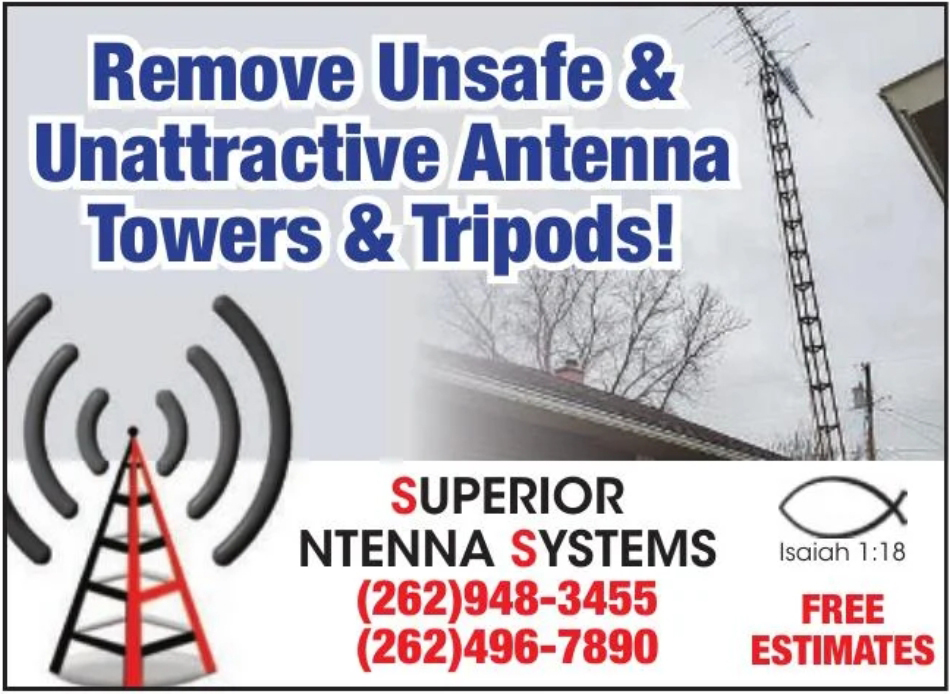



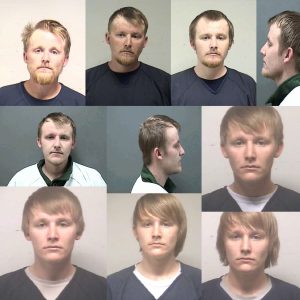



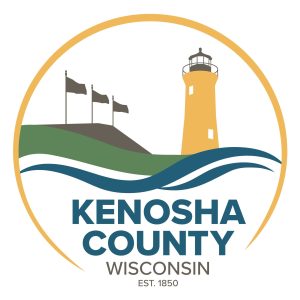






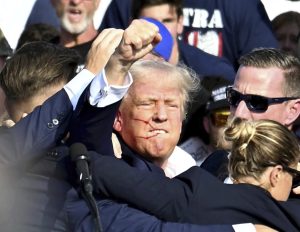


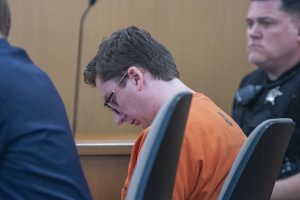

6 Responses
Can’t imagine what it’s like constantly dealing with a prosecutor’s office like Kenosha. I highly doubt Binger and Kraus are the exception.
Hey what’s goin’ on with Black? Binger still on him like a pitbull on a mailman?
No trial date yet
I had read a book written by Mike Chicchini, a very good lawyer. If my memory recalls correctly, in his book he mentions how common a defendants constitutional right are often violated not only by the police, but prosecutors and judges alike. Read the book several yeas ago though I seem to recall this with great interest.
Charge stacking. Disorderly conduct indicative of racism, huh? Guess thatmakes the Fed prosecutors racist as heck because damn near every person charged for 1/6 has two or more DC charges, and the ‘stacking’ is absolutely blatant.
This is all so disgusting. They’re the enemy and see us as complaining useless eaters.
I don’t believe the PD is racist one bit. I believe the activists and some “county supervisors “ who are wanna be activist are racist. I think the word racist is now thrown around when someone don’t get their way or are upset with a outcome. I mean the “activist “ of kenosha called rittenhouse a white supremacy member, for shooting 3 white people and calling one white guy that yelled the N word a hero. So ass backwards the hypocrites are in this city
Just ask the question; who is breaking the law ?
All else is bullshit.